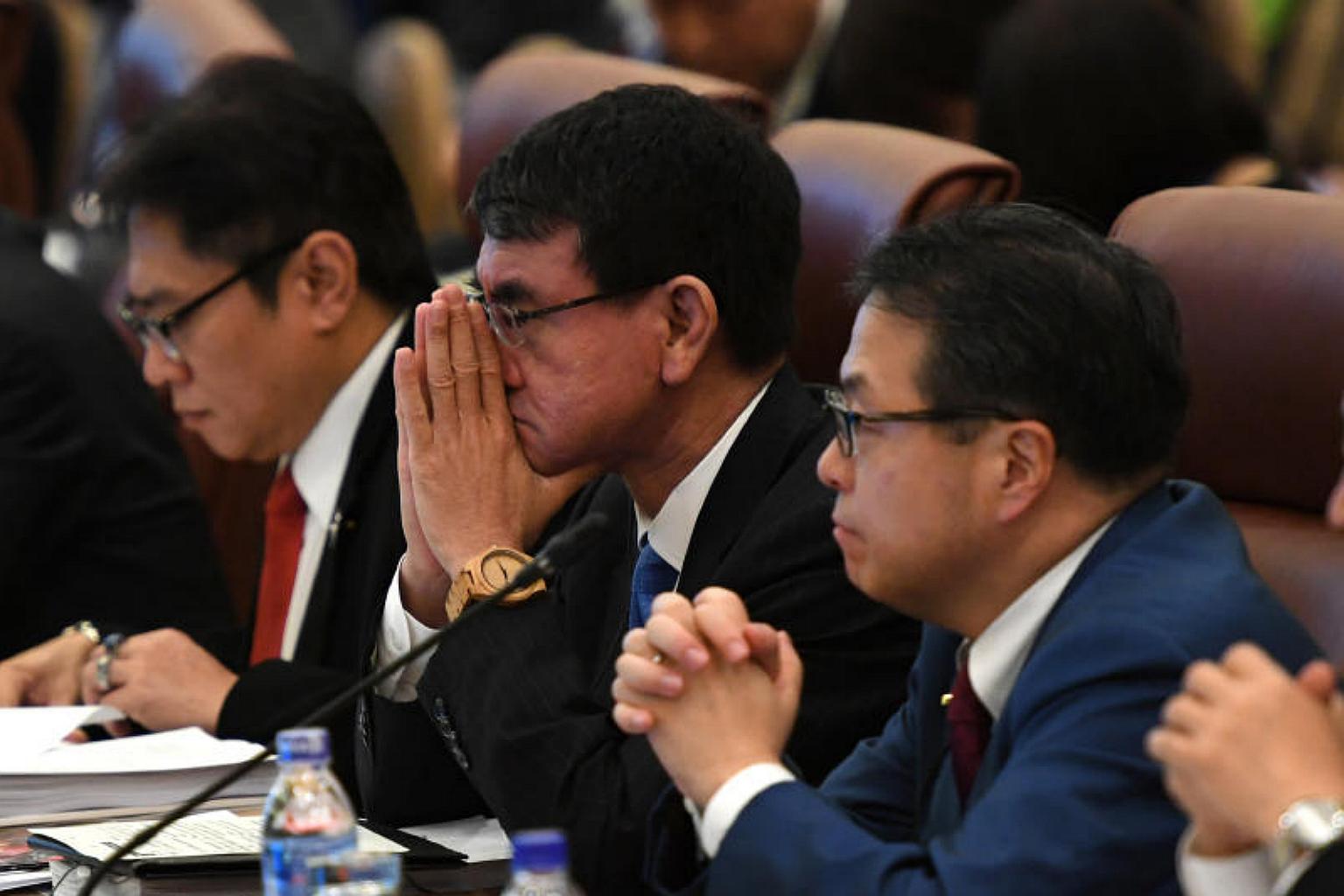Fate of Trans-Pacific Partnership deal, minus the US, remains up in the air
Sign up now: Get ST's newsletters delivered to your inbox

Japanese Foreign Minister Taro Kono (centre) told Vietnamese Deputy Prime Minister and Foreign Affairs Minister Pham Binh Minh on Tuesday that he hoped the TPP-11 countries could arrive at an in-principle agreement this week.
PHOTO: REUTERS
Lee U-Wen
Follow topic:
DA NANG - The future of the Trans-Pacific Partnership (TPP) is still highly uncertain, even as the 11 remaining nations are trying their best to salvage the mega free trade deal after the abrupt withdrawal of the United States earlier this year.
The chief negotiators and trade ministers from the so-called "TPP-11" countries are now in the Vietnamese seaside resort of Da Nang for a series of meetings, ahead of a planned summit of the TPP leaders on Friday (Nov 10).
Japan has been lobbying hard to reach an agreement on the sidelines of this week's Asia-Pacific Economic Cooperation (Apec) Summit in Da Nang after US President Donald Trump yanked the world's largest economy out of the TPP in one of his administration's first acts.
Japanese Foreign Minister Taro Kono told Vietnamese Deputy Prime Minister and Foreign Affairs Minister Pham Binh Minh on Tuesday that he hoped the TPP-11 countries could arrive at an in-principle agreement this week.
The TPP members are Australia, Brunei, Canada, Chile, Japan, Malaysia, Mexico, New Zealand, Peru, Singapore and Vietnam. All of them are also part of the 21-member Apec bloc.
The TPP, if eventually realised, will eliminate tariffs on industrial and farm products across the 11 nations that saw trade totalling some US$356 billion (S$485 billion) in 2016.
The deal also has provisions for protecting everything from the environment to intellectual property to labour rights.
In an interview with Bloomberg TV earlier this week, Apec Secretariat executive director Alan Bollard said there is every chance that an agreement could be reached to proceed with the TPP, minus the US.
"It's not Apec, but it's half the Apec members, it's pretty important," he said. "A TPP-11 announcement would be quite a boost around the region especially if, as one might expect, they would say (they are) open to new entrants."
Malaysia's International Trade and Industry Minister Mustapa Mohamed was quoted in a Bloomberg report as saying that his country is not in favour of re-negotiating the deal as it would take far too long.
"Re-negotiation would take a long time. All of us agreed that to re-negotiate would probably take five, 10 years, so that's not on. That's a no-go," he said.
"We've been talking with our colleagues on some provisions which could be suspended," Mr Mustapa added, without giving details.
Vietnam, this year's Apec host, is eager to press on with the TPP. It is regarded as the country most affected by the US' withdrawal.
Vietnam is the poorest of the TPP members and observers have long said it had the most to gain from the original TPP, given how Vietnam does not have a bilateral free trade agreement with the US.
"Vietnam will work actively with other economies to reduce the gap between them to ensure the balance of interests after the United States decided to withdraw," said Vietnam's deputy foreign minister Bui Thanh Son at a news conference in Da Nang on Tuesday.

